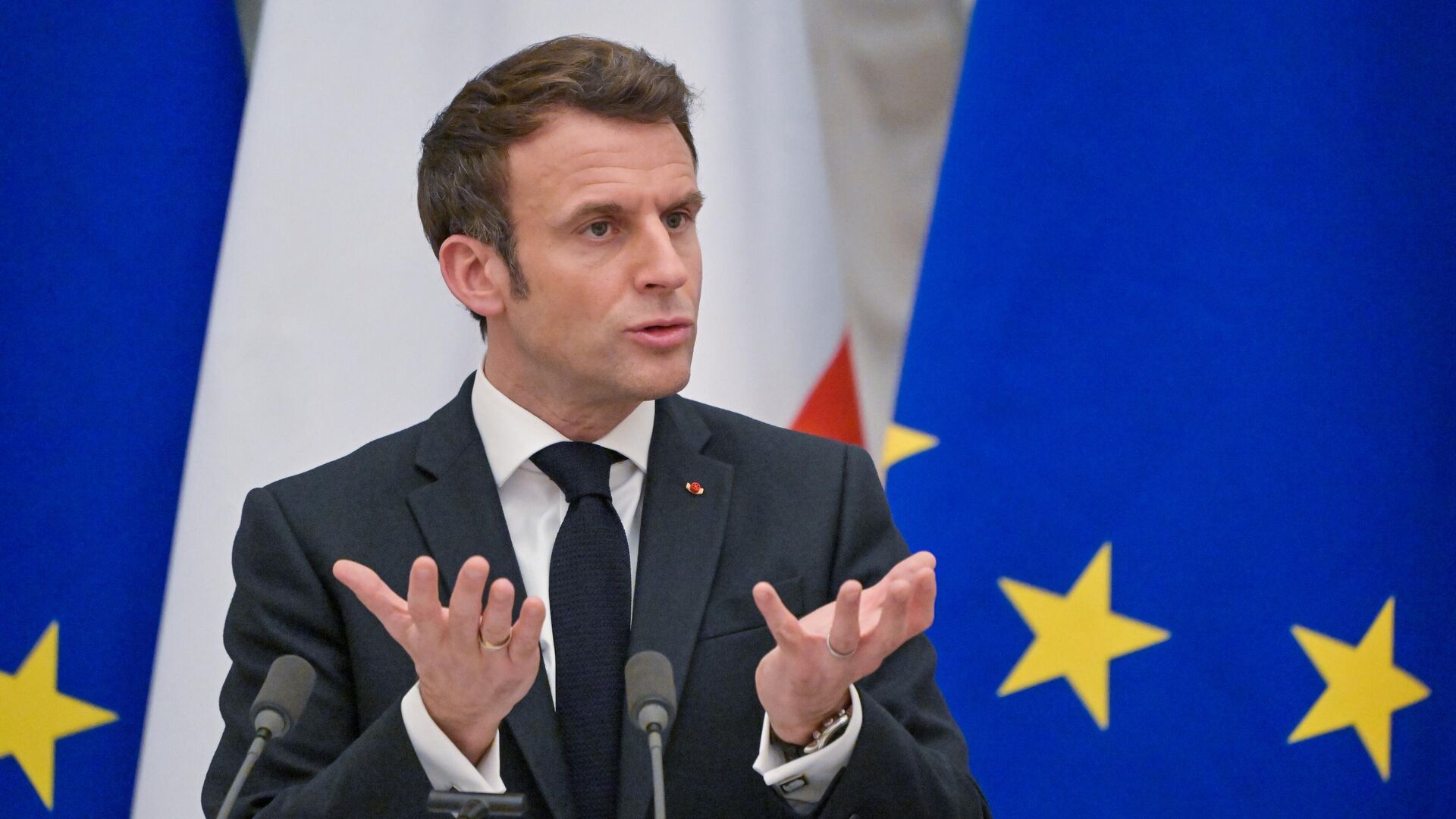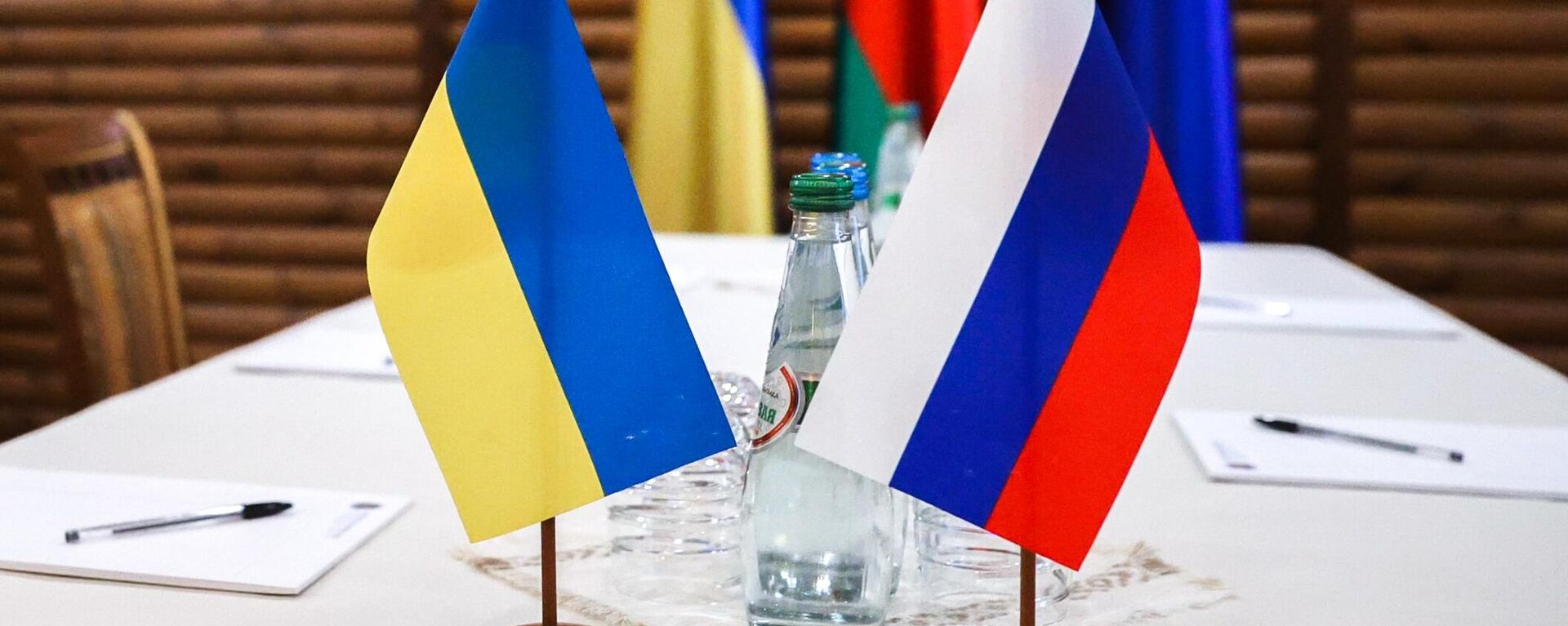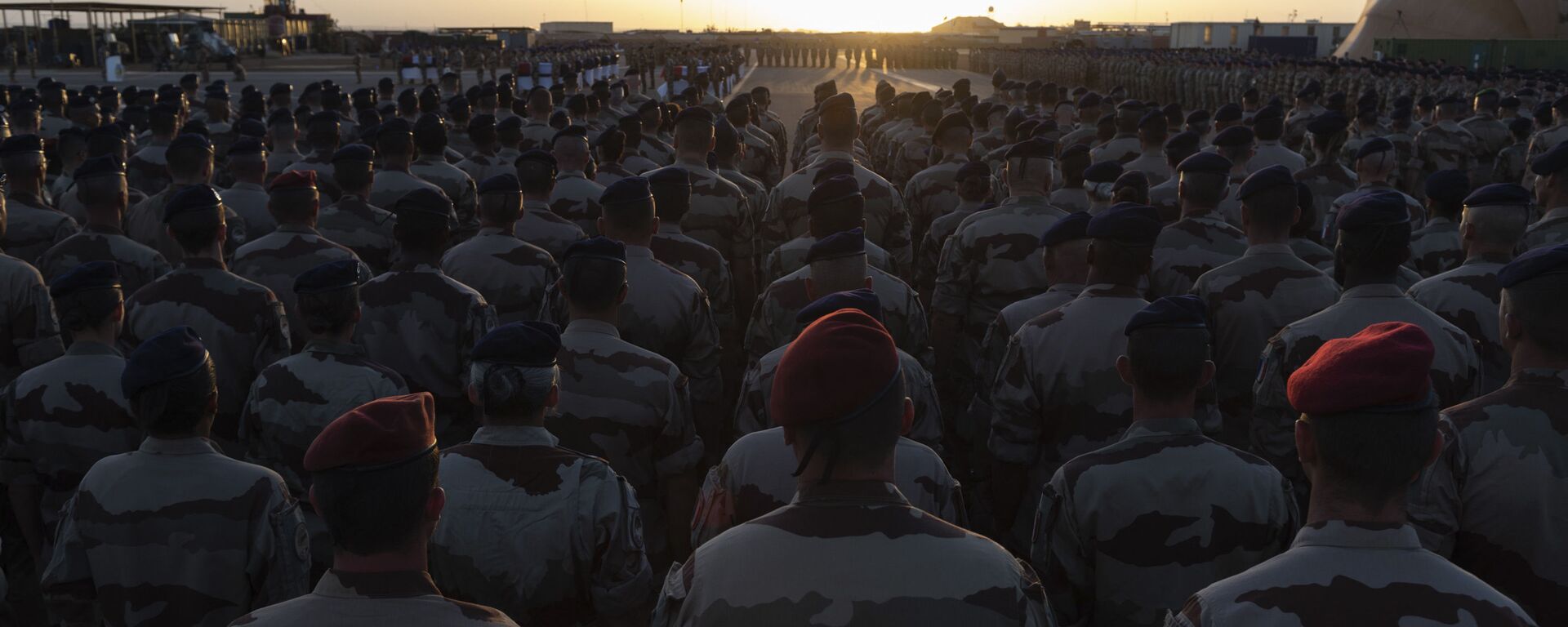https://sputnikglobe.com/20240313/putins-response-to-macrons-frustration-over-africa-has-ironic-ring-to-it-1117310146.html
Putin’s Response to Macron’s 'Frustration' Over Africa Has Ironic Ring To It
Putin’s Response to Macron’s 'Frustration' Over Africa Has Ironic Ring To It
Sputnik International
During his interview, president Vladimir Putin responded to Dmitry Kiselev’s guess that the French president’s anti-Russian steps could be explained by the desire “to avenge the loss of French influence in Africa.”
2024-03-13T19:41+0000
2024-03-13T19:41+0000
2024-03-13T21:31+0000
analysis
vladimir putin
emmanuel macron
dmitry kiselev
russia
russian academy of sciences (ras)
sputnik
france
https://cdn1.img.sputnikglobe.com/img/07e7/08/07/1112440679_0:0:3460:1947_1920x0_80_0_0_92636ecadb36cb1611a8a1ceaac5249a.jpg
“Could it be the case that Macron decided to settle scores with Russia for ‘stepping on his tail’ in Africa?” Kiselev asked, adding: “Could it be that Macron just did not expect us to be so active?”There is an element of resentment,” Putin replied. “But we did not try to get into Africa by all means and we did not squeeze France out of Africa.”The president pointed out that the Wagner PMC group had sought clients in Africa after completing some projects in Syria.“The [Russian] defense ministry provided some assistance, but only because it was a Russian group, there was no other reason,” Putin explained, stressing that France’s loss of influence was not Russia’s doing.“We did not banish anyone from Africa. What happened was that the leaders of some African countries made agreements with some Russian economic operators,” Putin said. “The Africans wanted to work with [Russians], in some cases they did not want to work with the French. It was not our initiative, it was an initiative of our African friends.”The Russian leader said it was not surprising that France’s former imperial dominions were hostile to their one-time colonial masters.“I am saying it without irony, in many former French colonies people are not very willing to do business with the French,” Putin said. “Maybe this passionate, somewhat emotional reaction of the French president may be partially connected to the events in some African states… But we have nothing to do with it, we do not pit anyone in Africa against France.”Putin was referring to the events of 2021 to 2023, when pro-French governments were overthrown in Mali and Guinea (2021), Burkina-Faso (2022), Niger (July 2023) and Gabon (August 2023).But was Macron’s “resentment” over these events so great that he proclaimed “no limits” for French military support to Ukraine and accused other Western leaders of “cowardice” for opposing the supply of long-range missiles to the Kiev regime?The French mainstream media blamed so-called “Russian mercenaries” and “Russian disinformation campaigns” for the fall of all these pro-French regimes in West Africa in 2021-2023. But even the Western press could not deny that the fallen pro-French regimes were genuinely unpopular and in some cases owed their power to France.Even Western television reports showed African waving Russian flags and calling for closer ties with Moscow. The interim governments in Mali and Niger declared that cooperation with Russia was a welcome alternative to the well-known ways of their former colonial masters from France.When Russian private military companies offered their services in 2021, after supprressing the Islamist insurgency in the Central African Republic, the government in Mali’s capital Bamako was only happy to see new faces in charge. The Malian government was the first to evict the French troops from its territory.That was a humiliation for Macron, who a year earlier in 2022 had made a tour of former French colonies in Africa denouncing Russia as “the only remaining nineteenth century-style colonial empire.”But West African nations turned out to be more hostile to French neo-colonialism — and not afraid of the Russian bogeyman conjured up by the French media.In Fedorov’s view, the neo-colonial exploitation of Francophone Africa was based on forcing the Africans to sign the uneven economic treaties and on the continued presence of French troops. Those troops were ostensibly in Mali and Niger “for everyone’s security,” but in reality they provided security to French companies – before everyone else.As for the origins of the “anti-French wave” that led to the toppling of pro-French governments in West Africa, Fedorov sees it in the “certain discontent that engulfed both the local elites and the people of Mali, Niger and Burkina-Faso.”For many years the locals heard France give promises of economic prosperity and security – if only Africans took advice from Paris.When the governments of French Africa – from Senegal to Djibouti – followed that advice they were not rewarded with economic prosperity, and in recent years security was also in sharp decline.
https://sputnikglobe.com/20240313/what-message-is-putin-sending-the-west-in-his-interview-1117298958.html
https://sputnikglobe.com/20240312/redeployment-of-french-troops-from-africa-to-russias-borders-a-deadly-idea-1117291810.html
russia
france
Sputnik International
feedback@sputniknews.com
+74956456601
MIA „Rosiya Segodnya“
2024
Dmitry Babich
https://cdn1.img.sputnikglobe.com/img/07e8/02/0e/1116778495_0:120:720:840_100x100_80_0_0_9bf47040bc46073fb920d272be7bc29d.jpg
Dmitry Babich
https://cdn1.img.sputnikglobe.com/img/07e8/02/0e/1116778495_0:120:720:840_100x100_80_0_0_9bf47040bc46073fb920d272be7bc29d.jpg
News
en_EN
Sputnik International
feedback@sputniknews.com
+74956456601
MIA „Rosiya Segodnya“
Sputnik International
feedback@sputniknews.com
+74956456601
MIA „Rosiya Segodnya“
Dmitry Babich
https://cdn1.img.sputnikglobe.com/img/07e8/02/0e/1116778495_0:120:720:840_100x100_80_0_0_9bf47040bc46073fb920d272be7bc29d.jpg
franch presence in africa, why did france leave africa, what was france doing in africa, why was france kicked out of africa, russia africa ties, why does russia support africa, how does russia support africa
franch presence in africa, why did france leave africa, what was france doing in africa, why was france kicked out of africa, russia africa ties, why does russia support africa, how does russia support africa
Putin’s Response to Macron’s 'Frustration' Over Africa Has Ironic Ring To It
19:41 GMT 13.03.2024 (Updated: 21:31 GMT 13.03.2024) During his interview, president Vladimir Putin responded to Dmitry Kiselev’s theory that the French president’s anti-Russian rhetoric could be explained by the desire “to avenge the loss of French influence in Africa.”
“Could it be the case that Macron decided to settle scores with Russia for ‘stepping on his tail’ in Africa?” Kiselev asked, adding: “Could it be that Macron just did not expect us to be so active?”
There is an element of resentment,”
Putin replied. “But we did not try to get into Africa by all means and we did not squeeze France out of Africa.”
The president pointed out that the Wagner PMC group had sought clients in Africa after completing some projects in Syria.
“The [Russian] defense ministry provided some assistance, but only because it was a Russian group, there was no other reason,” Putin explained, stressing that France’s loss of influence was not Russia’s doing.
“We did not banish anyone from Africa. What happened was that the leaders of some African countries made agreements with some Russian economic operators,” Putin said.
“The Africans wanted to work with [Russians], in some cases they did not want to work with the French. It was not our initiative, it was an initiative of our African friends.”
The Russian leader said it was not surprising that France’s former imperial dominions were hostile to their one-time colonial masters.
“I am saying it without irony, in many former French colonies people are not very willing to do business with the French,” Putin said. “Maybe this passionate, somewhat emotional reaction of the French president may be partially connected to the events in some African states… But we have nothing to do with it, we do not pit anyone in Africa against France.”
Putin was referring to the events of 2021 to 2023, when pro-French governments were overthrown in Mali and Guinea (2021), Burkina-Faso (2022), Niger (July 2023) and Gabon (August 2023).
But was Macron’s “resentment” over these events so great that he proclaimed “no limits” for French military support to Ukraine and accused other Western leaders of “cowardice” for opposing the supply of long-range missiles to the Kiev regime?
The French mainstream media blamed so-called “Russian mercenaries” and “Russian disinformation campaigns” for the fall of all these pro-French regimes in West Africa in 2021-2023. But even the Western press could not deny that the fallen pro-French regimes were genuinely unpopular and in some cases owed their power to France.
Even Western television reports showed African waving Russian flags and calling for
closer ties with Moscow. The interim governments in Mali and Niger declared that cooperation with Russia was a welcome alternative to the well-known ways of their former colonial masters from France.
“The French military has conducted two massive military operations against the Islamists in Mali and neighboring countries in 2013-2020,” Sergey Fedorov, the head of the Center for French Studies at the Institute of Europe, Russian Academy of Sciences, told Sputnik. “A lot of peaceful citizens were killed by stray bullets in these operations called Cerval and Barkhane. But people did not feel more secure after them.”
When Russian private military companies offered their services in 2021, after supprressing the Islamist insurgency in the
Central African Republic, the government in Mali’s capital Bamako was only happy to see new faces in charge. The Malian government was the first to evict the French troops from its territory.
That was a humiliation for Macron, who a year earlier in 2022 had made a tour of former French colonies in Africa denouncing Russia as “the only remaining nineteenth century-style colonial empire.”
But West African nations turned out to be more hostile to French neo-colonialism — and not afraid of the Russian bogeyman conjured up by the French media.
“France used to be the colonial master of a huge chunk of West Africa for more than a century, but all its former colonies stay poor despite their abundant natural resources and many years of copying French ways,” explains Fedorov. “Officially, France dismantled its colonial rule in Africa in 1975. But in reality France continued to reduce Senegal to the production of peanuts and cotton. Until recently France got 18% of uranium for its atomic power stations from Niger – and got it almost for a song, the prices were just ludicrous. Even the French press could not ignore it.”
In Fedorov’s view, the neo-colonial exploitation of Francophone Africa was based on forcing the Africans to sign the uneven economic treaties and on the continued
presence of French troops.
Those troops were ostensibly in Mali and Niger “for everyone’s security,” but in reality they provided security to French companies – before everyone else.
As for the origins of the “
anti-French wave” that led to the
toppling of pro-French governments in West Africa, Fedorov sees it in the “
certain discontent that engulfed both the local elites and the people of Mali, Niger and Burkina-Faso.”
For many years the locals heard France give promises of economic prosperity and security – if only Africans took advice from Paris.
When the governments of French Africa – from Senegal to Djibouti – followed that advice they were not rewarded with economic prosperity, and in recent years security was also in sharp decline.







